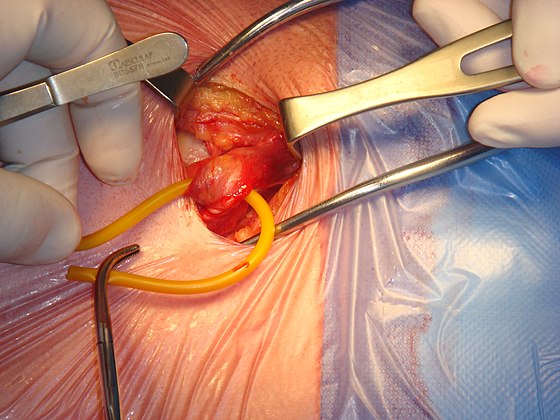Inguinal Hernia Surgery in Hyderabad

What is Inguinal Hernia Surgery?
Inguinal hernia surgery, also known as herniorrhaphy, is a surgical procedure performed to repair an inguinal hernia. An inguinal hernia occurs when tissues, such as part of the intestine, protrude through a weak spot or opening in the abdominal muscles in the groin area. Inguinal hernias are common and can cause discomfort, pain, and other symptoms. Surgery is often recommended to treat this condition effectively.

Why is Inguinal Hernia Surgery Performed?
How to Prepare for Inguinal Hernia Surgery:
- Before undergoing inguinal hernia surgery, your healthcare provider will provide specific instructions to help you prepare. These may include:
- Medical Evaluation: You will undergo a thorough medical evaluation, including a physical examination, medical history review, and possibly additional tests such as blood work or imaging studies.
- Medication Adjustments: Inform your healthcare provider about any medications you are currently taking, including over-the-counter medications and supplements. They may advise you to temporarily stop certain medications before the surgery.
- Fasting: Typically, you will be required to fast for a certain period before the surgery to ensure your stomach is empty. This reduces the risk of complications related to anesthesia.
- Arrange Transportation: Since you will be receiving anesthesia, arrange for someone to drive you to and from the hospital or surgical center.
- Follow Pre-Surgery Instructions: Your healthcare provider will provide specific instructions regarding what you should or should not do in the days leading up to the surgery, such as bathing with a special soap or avoiding certain foods or beverages.
More About Inguinal Hernia Surgery:
Inguinal hernia surgery can be performed using different techniques, including open surgery and minimally invasive approaches such as laparoscopic or robotic surgery. The choice of technique depends on factors such as the size and type of hernia, surgeon’s expertise, and individual patient factors.
During the surgery, the surgeon will make an incision near the hernia site. The protruding tissue is pushed back into the abdominal cavity, and the weakened abdominal muscles or tissues are repaired or reinforced. In some cases, a synthetic mesh may be used to provide additional support. The incision is then closed with sutures or surgical staples.
Consequences of Delaying Inguinal Hernia Surgery
Delaying inguinal hernia surgery can lead to various consequences:
- Increased Discomfort: Inguinal hernias tend to worsen over time, resulting in increased pain, discomfort, and limitations in daily activities.
- Risk of Complications: As mentioned earlier, untreated inguinal hernias can lead to complications such as incarceration and strangulation. These are serious conditions requiring emergency medical attention and can be life-threatening.
- Impact on Quality of Life: Inguinal hernias can significantly impact an individual’s quality of life, affecting their ability to work, engage in physical activities, and perform daily tasks comfortably.
- Larger Hernia Size: Delaying surgery may result in the hernia increasing in size, making the repair more complex and potentially requiring more extensive surgical procedures.
Frequently Asked Questions (FAQs)
An inguinal hernia occurs when tissues, such as part of the intestine, protrude through a weak spot or opening in the abdominal muscles in the groin area.
The need for surgery is determined based on symptoms, the size of the hernia, and the risk of complications. Common symptoms include a visible bulge in the groin, pain or discomfort, and a dragging sensation. Your healthcare provider will assess your condition and recommend surgery if necessary.
Inguinal hernia surgery can be performed using open surgery, laparoscopic surgery, or robotic surgery. Open surgery involves making an incision near the hernia site, while laparoscopic and robotic surgeries are minimally invasive and use small incisions and specialized instruments.
Recovery time varies depending on the surgical technique and individual factors. Generally, patients can expect some discomfort, swelling, and limited activity in the first few days or weeks. Most people can resume normal activities within a few weeks, but it may take longer for physically demanding activities.
While complications are rare, they can include infection, bleeding, damage to surrounding structures, recurrence of the hernia, and reactions to anesthesia. Your surgeon will discuss the potential risks with you before the surgery and take steps to minimize them.







